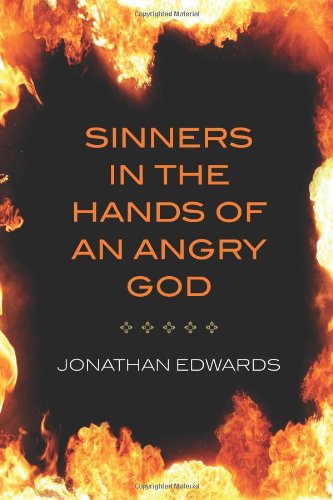All Nonfiction
- Bullying
- Books
- Academic
- Author Interviews
- Celebrity interviews
- College Articles
- College Essays
- Educator of the Year
- Heroes
- Interviews
- Memoir
- Personal Experience
- Sports
- Travel & Culture
All Opinions
- Bullying
- Current Events / Politics
- Discrimination
- Drugs / Alcohol / Smoking
- Entertainment / Celebrities
- Environment
- Love / Relationships
- Movies / Music / TV
- Pop Culture / Trends
- School / College
- Social Issues / Civics
- Spirituality / Religion
- Sports / Hobbies
All Hot Topics
- Bullying
- Community Service
- Environment
- Health
- Letters to the Editor
- Pride & Prejudice
- What Matters
- Back
Summer Guide
- Program Links
- Program Reviews
- Back
College Guide
- College Links
- College Reviews
- College Essays
- College Articles
- Back
Sinners in the Hand of an Angry God by Jonathan Edwards
The sermon “Sinners in the Hand of an Angry God” was written by Christian theologian Jonathan Edwards, in 1741. The doctrine was intended to plunge the fear of God into those who were being sinful. Many people could not understand the sermon without knowing about it's author first. Edwards provided crucial theological points on the problems of free will and original sin, fueling American revivalism. In Edwards’ time, people believed God knows how all things are to be determined. And since they believed this to be true, Man cannot have free will. Edwards, however, believed one has the power to choose how one will act, and doing so, this makes one free. He believed that acting freely means being responsible for one’s action and its consequences, good or bad. Edwards also believed the children of Adam (mankind) identify or have a “oneness” with Adam, and in this “oneness”, mankind shares the guilt of original sin. Edwards, with an bold approach to persuade with what he calls fire and brimstone shows several mockery similes through the sermons “Ten Considerations”.
For instance, in the first of ten considerations, Edwards conducts the simile: “Though hand join in hand, and vast multitudes of God's enemies combine and associate themselves, they are easily broken in pieces: they are as great heaps of light chaff before the whirlwind; or large quantities of dry stubble before devouring flames”. What Edwards is implying is that there is no want of power in God to cast wicked men into hell at any moment. Mans hands can't be strong when God rises up: the strongest have no power to resist him, nor can any deliver out of his hands. This line can easily be said about the fourth of the considerations in which he states: “The wicked, on earth- at this very moment- suffer the torments of Hell. The wicked must not think, simply because they are not physically in Hell, that God (in whose hand the wicked now reside) is not- at this very moment- as angry with them as he is with those miserable creatures. He is now tormenting in hell, and who- at this very moment- do feel and bear the fierceness of his wrath”. The fact that Edwards proclaims in both passage one and four that certain men, who have been touched by the “wicked” in a way that is not god shows his knowledge of God.
His superior knowledge of God only comes from texts that have been around for thousands of years.
How this appeals to the tradition and emotions of the parishioners can clearly be implied in the fifth consideration. In which Edwards states: “The devils watch them; they are ever by them, at their right hand; they stand waiting for them, like greedy hungry lions that see their prey, and expect to have it, but are for the present kept back; if God should withdraw his hand, by which they are restrained, they would in one moment fly upon their poor souls”. What Edwards' intends to say is that as long as the wicked keep mistreating the gifts in which God gives them to say “make profit” then it would take them longer to be able to recover from their sins. In the ninth passage there is a drastic change in tone, in which Edwards' from bewildering those who are wicked to saying after they pass on they will in deed go to hell, if they do not repent: “The bigger part of those that heretofore have lived under the same means of grace, and are now dead, are undoubtedly gone to hell: and it was not because they were not as wise as those that are now alive”.
In conclusion to sermon Edwards closes with last and final consideration with: “They have deserved the fiery pit, and are already sentenced to it; and God is dreadfully provoked, his anger is as great towards them as to those that are actually suffering the executions of the fierceness if his wrath in hell, and they have done nothing in the least to appease or abate that anger, neither is God in the least bound by any promise to hold 'em up one moment”. He finishes by saying that God has never promised to save us from Hell, except for those contained in Christ through the covenant of Grace.
Similar Articles
JOIN THE DISCUSSION
This article has 0 comments.

